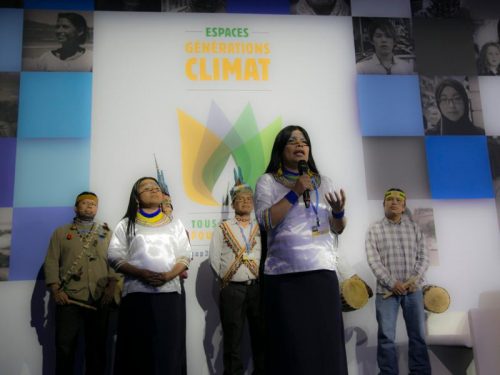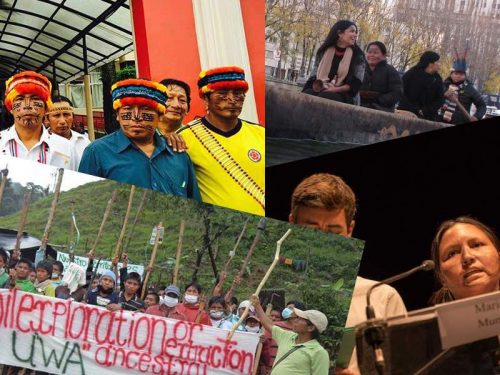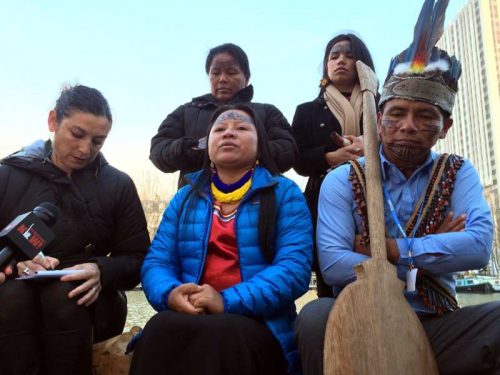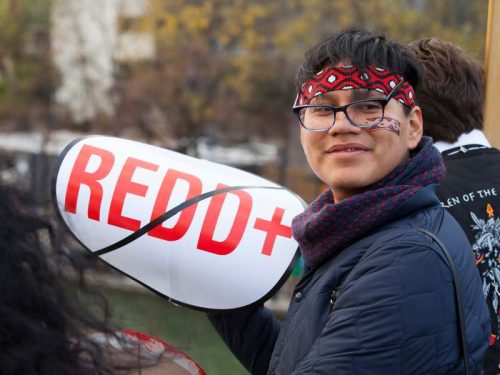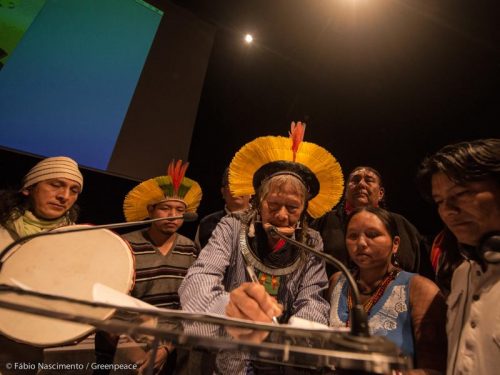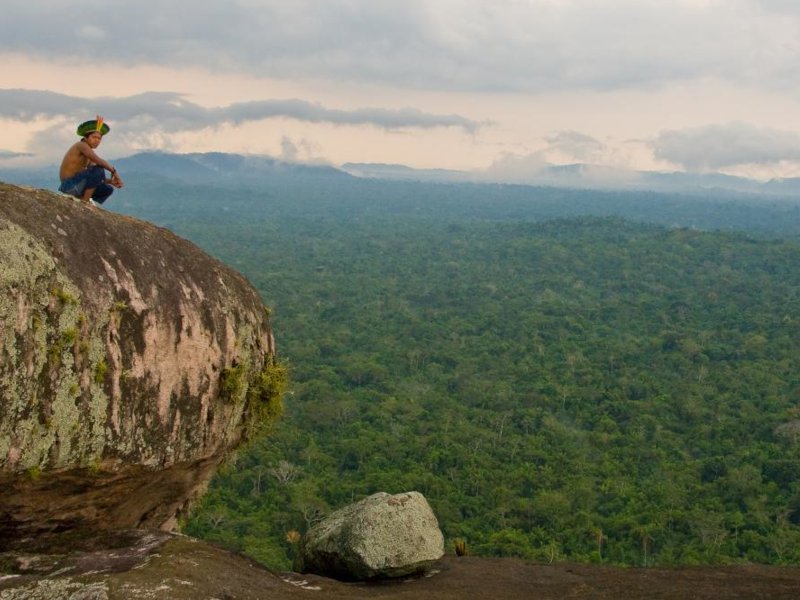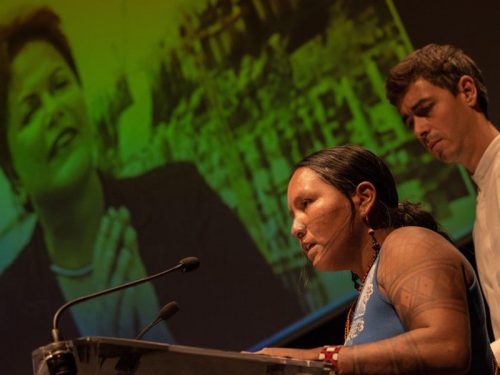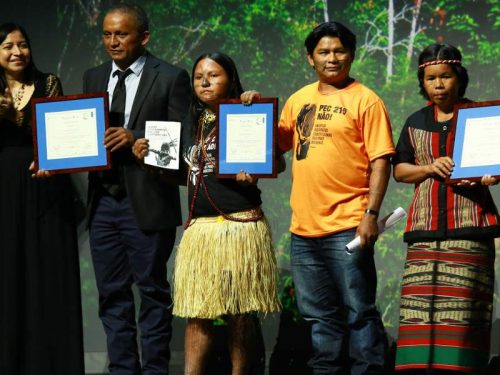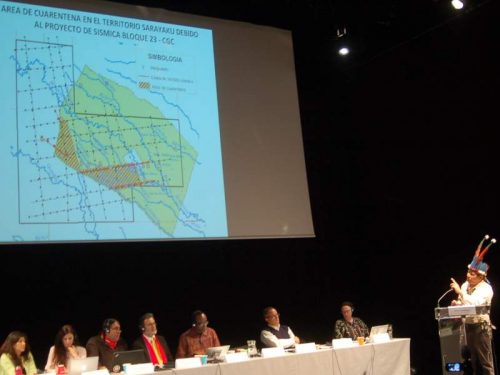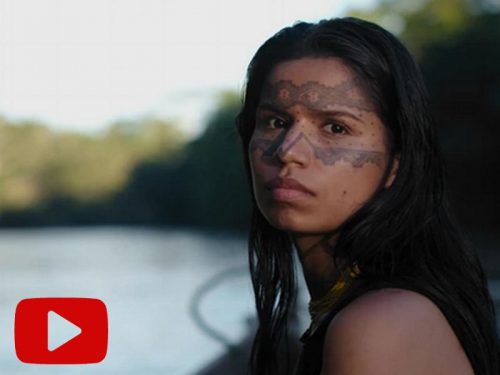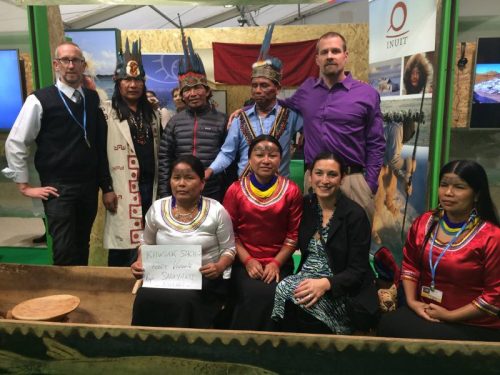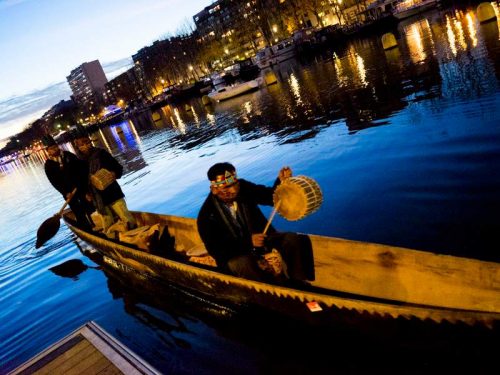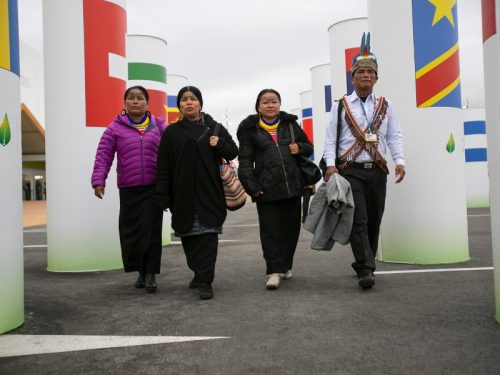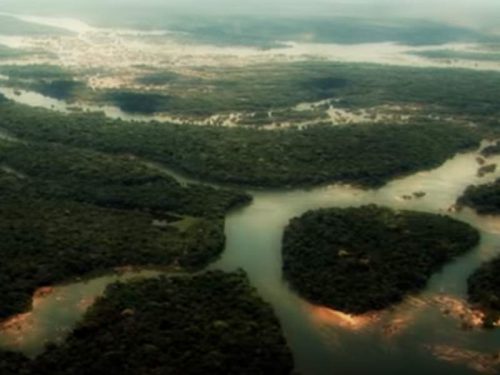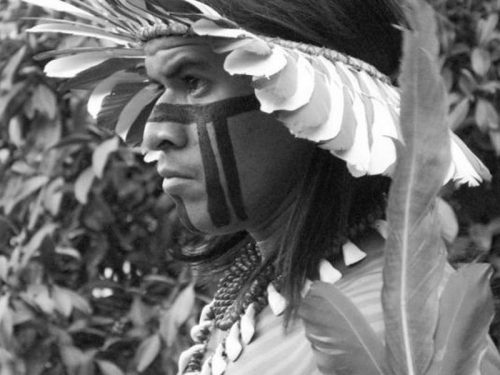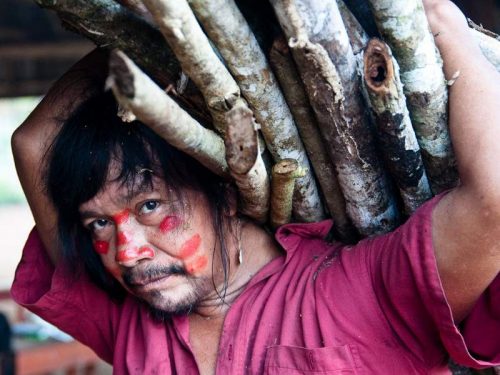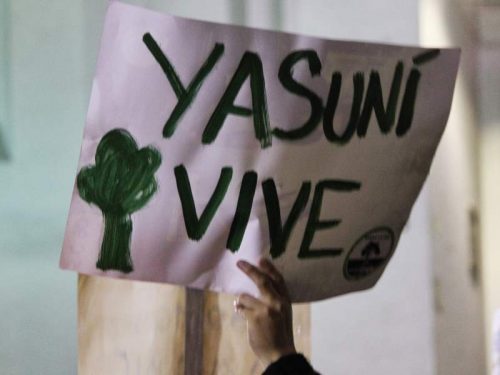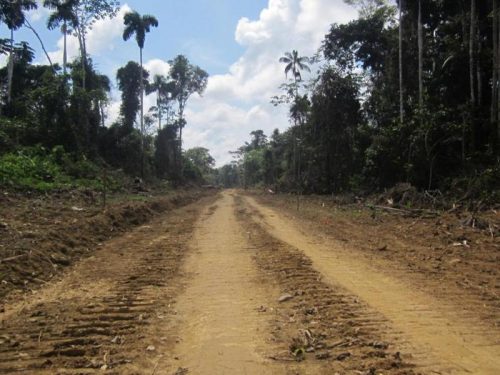On Dec. 12th, 195 nations signed the Paris Climate Accord, an agreement to limit CO2 emissions for the first time. In the days following, a debate has raged over whether the accord is a historic, unprecedented deal or whether it's the product of a pro-business climate circus that sold out basic science and principles of justice.
All: 2015
Five Reasons To Be Hopeful for the Future of the Amazon
The Amazon rainforest can seem unimaginably vast. Similarly, the fight to defend it from the onslaught of industrial-scale threats like oil drilling, logging, and huge dams can appear overwhelming. But across the region, local indigenous peoples and our work to support them is making the difference and protecting the lands they have known for...
Solstice Reflections of Our Work at COP21 and Beyond
As I reflect on our recent work at COP21 in Paris on the Winter Solstice, I am very proud of what we achieved and filled with great hope for our work ahead. The Amazon Watch team did an incredible job of accompanying and supporting a twelve-person delegation of indigenous leaders, women and youth from the Kichwa community of Sarayaku in the...
Our Generation Is the World’s Voice for Climate Action
I was among the Indigenous People from the Amazon Rainforest who made it to the COP21 climate summit in Paris. I felt it was my duty to be the voice of those who could not attend.
The Human Side of the Climate Change Equation
While government officials inside COP21 conference rooms just outside Paris were reviewing the cost-benefit analyses of cutting down on emissions or debating the numerical semantics of the warming of the earth, the human side of climate change and environmental destruction took center stage just a few kilometers south at the Maison des Metallos on...
Amazon Watch is building on more than 25 years of radical and effective solidarity with Indigenous peoples across the Amazon Basin.
What the Paris Climate Agreement Means for Indigenous Rights and Hydroelectric Dams
The final agreement from the Paris climate talks has been the subject of much controversy regarding the language in the document pertaining to indigenous rights. Any semblance of a legally binding measure pertaining to these rights was omitted from the final agreement that was signed by the governments of 190 countries. The agreement concluded a...
"Where Our Government Kills, We Cultivate Life"
At the closure of this year's critical COP21 summit in Paris, the most inspirational stories do not stem from official negotiations. They emanate from the heroic efforts of global indigenous movements, bringing a message of resilience and defiance from the front lines of climate change.
Brazilian Public Prosecutors Denounce Ethnocide and Call for Judicial Intervention in Belo Monte
The Federal Public Prosecutor's Office today initiated legal proceedings in a federal court in Altamira seeking recognition that the implementation of the Belo Monte dam project constitutes an act of ethnocide by the Brazilian government and dam concessionaire Norte Energia, citing abundant evidence of "the destruction of the social organization...
Climate Agreement Reached, but Fails to Recognize Indigenous Rights and Climate Justice
Paris, France – Over the last two weeks, Amazon Watch stood in solidarity with indigenous peoples and front line communities as they forcefully advocated for their rights and promoted true climate solutions at the COP21 climate summit. As the details of the Paris Accord are being revealed, we continue to support their rights, solutions and their...
Communities from Latin America Among Those Honoured with Equator Prize 2015
"Our struggle is large and dangerous, but we know we shall win. I've been to Belo Monte so I know what these dams represent: if they are built on the Tapajós they will flood our lands, and destroy our fish and hunting. We've come to put an end to this madness," Munduruku Chief Suberanino Saw told Amazon Watch in 2104.
Ecuador Condemned at the New Tribunal for the Rights of Nature in Paris
Last weekend, while the official COP21 negotiations were going on north of Paris at a site called Le Bourget, leaders of indigenous nations in North and South America were in Paris calling for justice for what they say are ongoing violations of the rights of the earth itself.
The Amazonian Tribespeople Who Sailed Down the Seine
The Kichwa tribe in the Sarayaku region of the Amazon in Ecuador believe in the 'living forest', where humans, animals and plants live in harmony. They are fighting oil companies who want to exploit their ancestral land. A delegation of indigenous people are at the Paris COP21 climate conference to make sure their voices are heard.
Sarayaku’s "Canoe of Life" Has a Valiant Spirit
For months Sarayaku - with our help - has been planning the canoe's journey to Paris. In the end, the canoe had its own plans. And, I'm realizing, the canoe's ultimate trajectory might well have been more wise than what we had laid out. The Canoe of Life's spirit continues to reveal itself.
Amazonian "Canoe of Life" Brings Indigenous Rights Message to COP21
Paris, France – At a sunrise ceremony on the Canal de la Villette, representatives of the Kichwa community of Sarayaku from the rainforests of Ecuador announced the arrival of a hand-carved 30-foot long traditional Amazonian canoe. The 10,000 km journey, three months in the making, marks the first time an Amazonian canoe of this kind has arrived...
"Kindy Challwa" Canoe of Life of the Kichwa First People of Sarayaku
After a long adventure of over a year – after the idea was born, after selecting the tree, after building the canoe, after being transported to the city, after having to respond to the demands of the Ministry of Environment and a review by the Ecuadorian police – on the 7th of December, the Canoe of Life arrived in Paris, France.
Sunrise Ceremony for Arrival of Canoe of Life from the Ecuadorian Amazon
Paris, France – Join us for a ceremonial welcoming of the Canoe of Life, specially built for the COP21 by the Kichwa community of Sarayaku in the Ecuadorian Amazon.
Brazilian Indigenous Movement Receives Prominent UN Environmental Prize at COP21 in Paris
Paris, France – Indigenous leaders Maria Leusa Kaba Munduruku and Rozeninho Saw Munduruku will receive today the prestigious UNDP Equator Prize at an awards ceremony at COP 21, in recognition of the Munduruku people's courageous efforts to protect their territories in the Brazilian Amazon from threats posed by planned hydroelectric dams, as well...
Historic Kayak Action demands Indigenous Peoples Rights in Paris Climate Accord
Paris, France – An all-Indigenous flotilla of kayaks took to the waters of Paris today, followed by a press conference featuring Indigenous leaders from the Americas delivering strong messages: warnings of the worst consequences of climate change, and holistic solutions to protect Mother Earth. This event, proposed by the Kichwa community of the...
Indigenous Flotilla of Kayaks and Press Conference Demanding True Climate Solutions at COP21
Paris, France – During the COP21 climate talks, Indigenous Peoples from the Arctic to the Amazon and their allies will gather to demand real climate solutions, including bottom-up initiatives originating in Indigenous knowledge, culture, and spirituality.
Global Coalition Says Mega-dams Should Be Kept Out of Climate Initiatives
A coalition of more than three hundred civil society organisations from 53 countries has launched a manifesto calling on government leaders and financiers at the Paris climate talks to keep large hydropower projects out of climate initiatives.
“Humanity – Together – Is in Danger of Extinction. Are We Really Understanding This?”
"Now is the time to stop these destructive ideas in our ancestral territories and around the world! We as indigenous peoples have the opportunity to bring our vision – and a clear proposal – that could call on a transformation for all of humanity."
Why a Paris Climate Treaty Needs To Protect the Amazon
As negotiators butt heads in Paris over the fine print of a new United Nations climate treaty, one issue they will need to address urgently is the fate of the Amazon.
10 Reasons Why Climate Initiatives Should Not Include Large Hydropower Projects
Support from climate initiatives is one of the reasons why more than 3,700 hydropower dams are currently under construction and in the pipeline. Yet large hydropower projects are a false solution to climate change.
Brazil Authorizes Operation of the Belo Monte Dam, Disregarding the Rights of Affected Communities
Altamira, Brazil – The Brazilian Institute of Environment and Renewable Natural Resources (IBAMA) today authorized the Belo Monte Dam’s operating license, which allows the dam's reservoirs to be filled.
From North Dakota to Paris With Love
The declaration makes several demands of governments: the end of subsidies to the fossil fuel industry, that the wealthier countries of the world promise to fund a "just transition to a clean and renewable energy economy for all" and, most importantly, that fossil fuels be kept in the ground by ending exploration and new extraction. The goal...
Peru’s Lawmakers Continue To Block Titling for Indigenous Peoples
Indigenous communities in Peru must clear 27 bureaucratic hurdles to obtain official recognition and formal land titles, a costly process that can take more than a decade, while concessionaires face between three and seven bureaucratic steps, depending on whether they seek permits for logging or mining, and can obtain their paperwork in less than...
Can the Paris Talks Save the Amazon?
With tens of thousands of climate officials converging on Paris at the end of the month to seek an international agreement on global warming, environmentalists are reviving a controversial plan to protect a pristine stretch of the Amazon's Yasuni National Park, which teems with biodiversity and is home to tribes living in voluntary isolation.
Solidarity for Victims of Violence in Beirut and Paris
Our hearts go out to all the victims of the violent attacks in Beirut and Paris last week, to their loved ones and all those in the path of violence in response to these attacks. We condemn these acts of senseless violence.
A New Amazon Highway Threatens Some of the Rainforest’s Last Uncontacted Tribes
Peru’s congress took a landmark vote that potentially compromises Manu National Park, the country’s most famous Amazonian protected area, and the neighboring Amarakaeri Indigenous Reserve, home to some of the last uncontacted tribes anywhere in the world. But the regional authorities aren’t waiting: Construction is already underway, even without...


